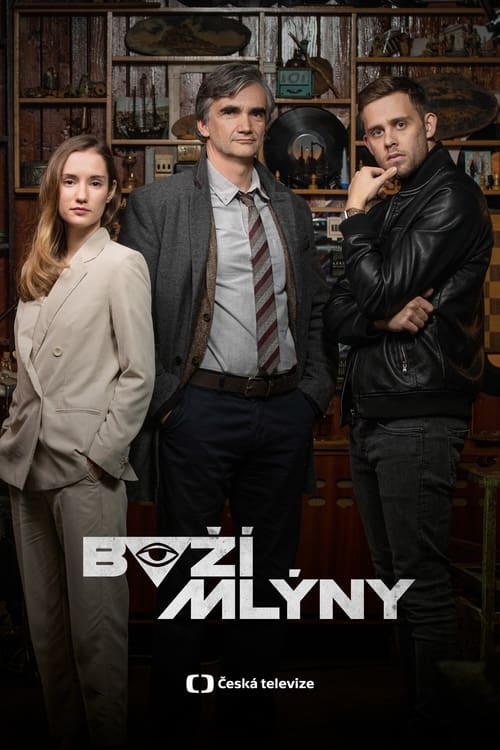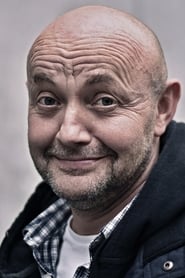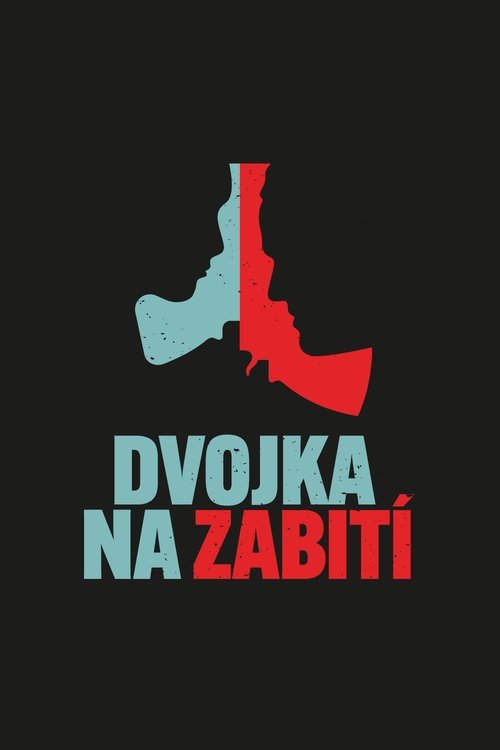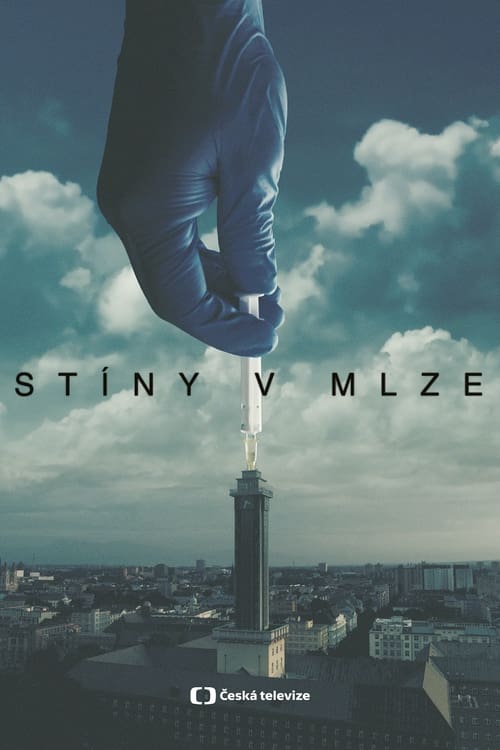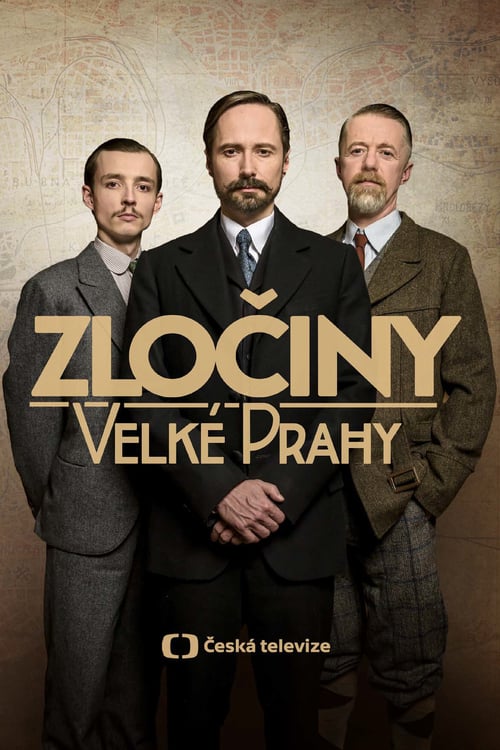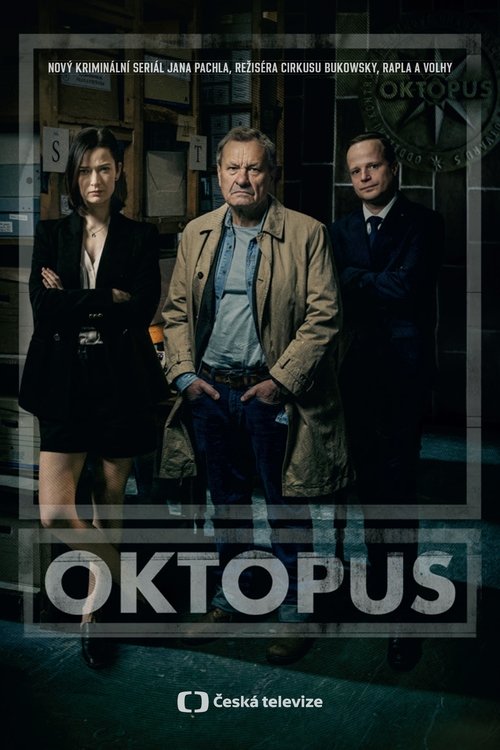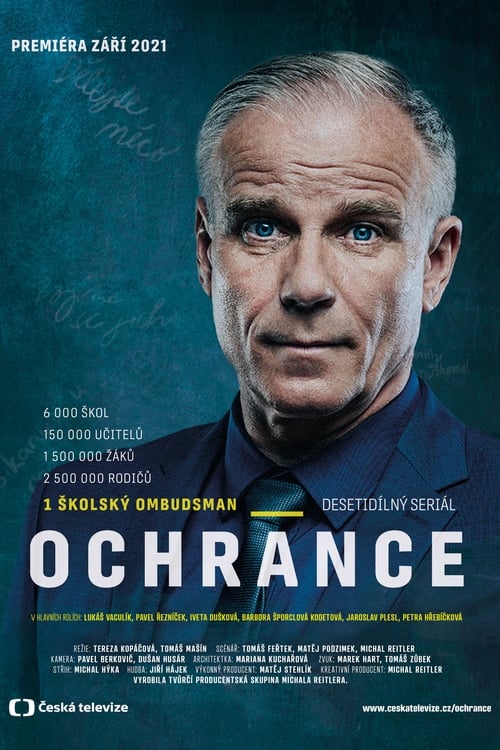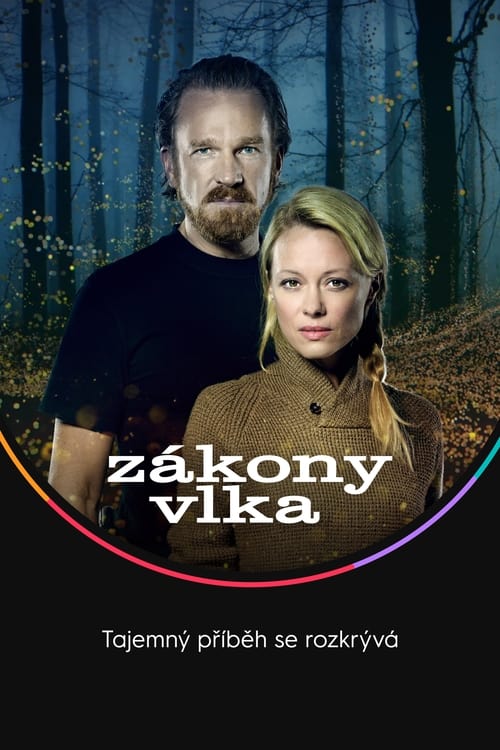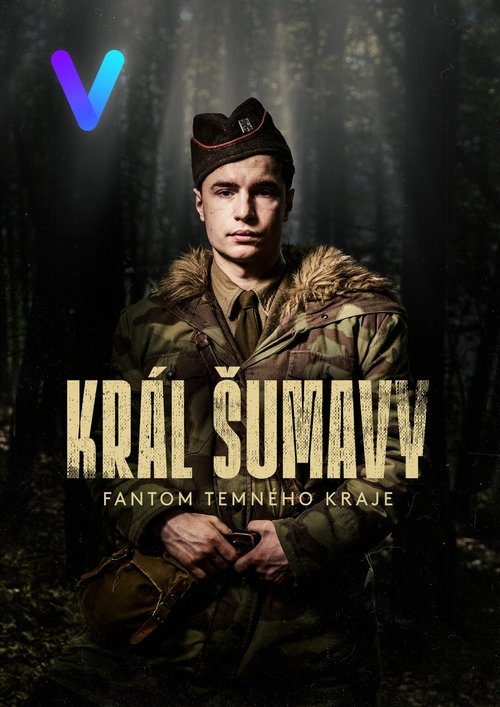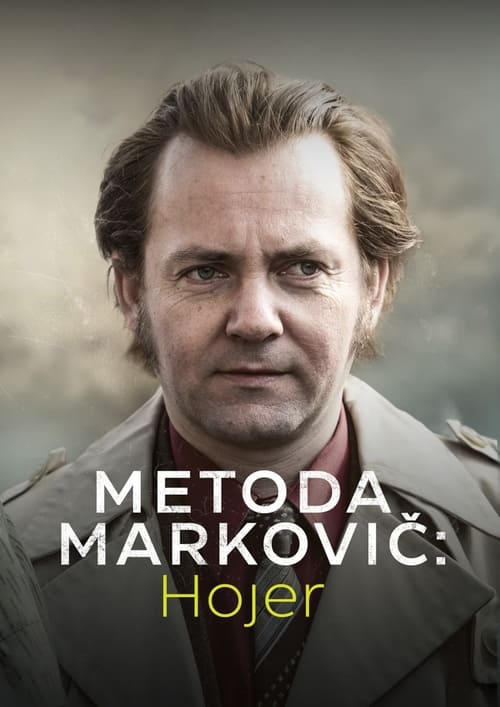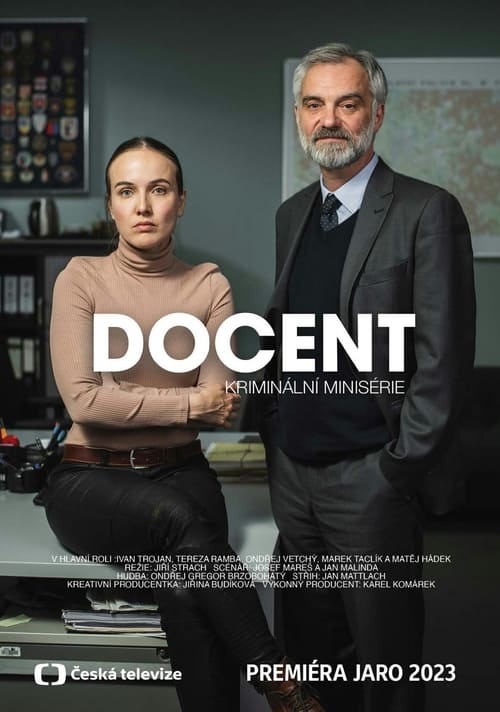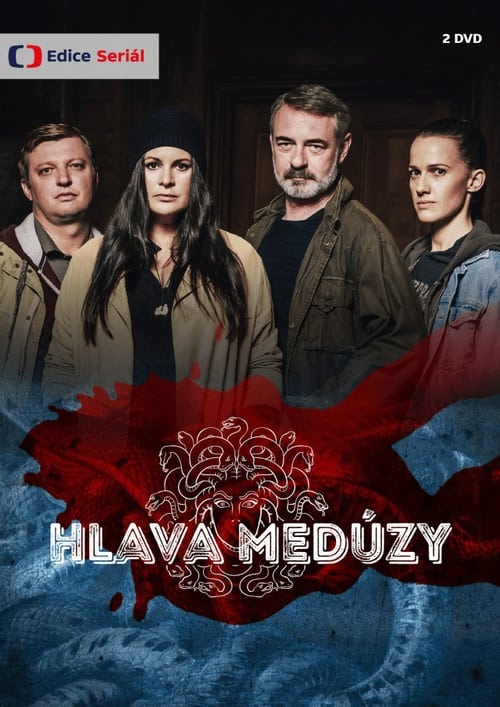
Ask Your Own Question
What is the plot?
In the opening scene of "Boží mlýny," we are introduced to the protagonist, a young woman named Anna, who is living a seemingly ordinary life in a small town. She works at a local bakery and has a close-knit group of friends. However, her life takes a dramatic turn when she receives a mysterious letter that hints at a dark family secret. The letter is unsigned, but it contains information about her late father, who she believed died in a car accident years ago.
As Anna grapples with the implications of the letter, she begins to investigate her father's past. She visits the local library and digs through old newspapers, uncovering articles about a series of unsolved crimes that occurred around the time of her father's death. This discovery leads her to question the circumstances surrounding his demise. Anna's emotional state shifts from confusion to determination as she resolves to uncover the truth.
In the following scenes, Anna confronts her mother, who has always been evasive about her father's past. During a heated argument, her mother reveals that her father was involved in criminal activities, which shocks Anna. This revelation deepens her resolve to learn more, and she decides to reach out to an old family friend, a retired police officer named Mr. Novak, who might have insights into her father's life.
Mr. Novak agrees to meet with Anna and shares his memories of her father. He tells her about a case involving a notorious gang that her father was allegedly connected to. As he speaks, Anna feels a mix of anger and betrayal, struggling to reconcile the image of her father as a loving parent with the possibility of him being a criminal. This internal conflict drives her to dig deeper, leading her to visit the locations mentioned in Mr. Novak's stories.
Anna's investigation leads her to a rundown bar on the outskirts of town, where she meets a man named Petr, who claims to have known her father. Petr is rough around the edges and initially reluctant to share information, but Anna's persistence pays off. He reveals that her father was trying to escape the gang's influence and had been working undercover to gather evidence against them. This revelation shifts Anna's perception of her father, igniting a sense of pride mixed with sorrow.
As Anna continues her search for the truth, she begins to receive threatening messages warning her to stop her investigation. The tension escalates when she discovers that the gang her father was involved with is still active and that they are aware of her inquiries. This realization puts her in danger, and she must navigate her fear while remaining determined to uncover the full story.
In a pivotal scene, Anna decides to confront the gang directly. She attends a meeting at an abandoned warehouse, where she hopes to gather evidence. Disguised and armed with a hidden camera, she witnesses a brutal exchange between gang members. The atmosphere is tense, and Anna's heart races as she captures the confrontation on film. However, her cover is blown, and she narrowly escapes the warehouse, leading to a high-stakes chase through the darkened streets.
After the close call, Anna seeks refuge with Mr. Novak, who helps her devise a plan to expose the gang. They work together to compile the evidence she has gathered, including the footage from the warehouse. As they prepare to go public, Anna's emotional state fluctuates between fear and empowerment, realizing the weight of her father's legacy and the danger she now faces.
The climax of the story occurs when Anna decides to hold a press conference to reveal the truth about her father's involvement with the gang and the crimes they committed. The event draws significant media attention, and Anna stands before the cameras, her voice trembling but resolute. She shares her father's story, emphasizing his attempts to do the right thing despite his past. The emotional weight of her words resonates with the audience, and she feels a sense of catharsis.
In the aftermath of the press conference, the gang retaliates, leading to a violent confrontation with Anna and Mr. Novak. They are ambushed at a secluded location, and a fierce fight ensues. Anna fights back with unexpected ferocity, using her knowledge of the gang's tactics to outmaneuver them. The scene is chaotic, filled with adrenaline and desperation as Anna and Mr. Novak struggle to survive.
Ultimately, law enforcement arrives just in time to apprehend the gang members, thanks to the evidence Anna provided. The resolution brings a sense of closure for Anna, who finally feels a connection to her father's true legacy. She stands at her father's grave, reflecting on the journey she has taken and the truth she has uncovered. The emotional weight of her father's choices and her own growth culminates in a poignant moment of acceptance as she lays flowers on his grave, symbolizing her reconciliation with the past.
What is the ending?
In the ending of "Boží mlýny," the main characters face the consequences of their actions throughout the series. The story culminates in a tense confrontation that leads to revelations and resolutions for each character. The fates of the protagonists are sealed as they grapple with their choices, ultimately leading to a sense of closure, albeit with lingering emotional scars.
As the final episodes unfold, we find ourselves in a dimly lit warehouse, the air thick with tension. The protagonist, Jakub, stands at the center, his face a mask of determination mixed with fear. He has been on a relentless quest for justice, driven by the loss of his loved ones. The camera zooms in on his clenched fists, revealing the internal struggle he faces between vengeance and morality.
Scene breaks reveal the shifting dynamics among the characters. In one corner, we see the antagonist, Marek, who has orchestrated much of the chaos throughout the series. His arrogance is palpable as he believes he has outsmarted everyone. The lighting casts shadows across his face, emphasizing his sinister nature. He taunts Jakub, reminding him of the pain he has caused, which only fuels Jakub's resolve.
As the confrontation escalates, the tension reaches a boiling point. Jakub's allies, including his close friend Tereza, arrive just in time to support him. Tereza, who has been a voice of reason throughout the series, stands beside Jakub, her expression a mix of fear and fierce loyalty. The camera captures her trembling hands, revealing her internal conflict about the violence that may ensue.
In a pivotal moment, Jakub confronts Marek, demanding answers about the past and the suffering he has inflicted. The dialogue is sharp and emotional, with each word laden with years of pain and betrayal. Marek, cornered, begins to unravel, revealing his own vulnerabilities. The audience can see the cracks in his facade, a man who has lost control of the chaos he created.
As the confrontation reaches its climax, a struggle ensues. The scene is chaotic, filled with shouts and the sounds of a scuffle. Jakub, fueled by rage and grief, finally overpowers Marek. The moment is visceral, with close-ups of their faces capturing the raw emotions--fear, anger, and a desperate need for closure.
In the aftermath, the warehouse is silent, save for the heavy breathing of the characters. Jakub stands over Marek, who is now defeated and vulnerable. The camera lingers on Jakub's face, a mixture of triumph and sorrow. He realizes that while he has avenged his loved ones, the victory feels hollow. The weight of his actions begins to settle in, and he understands that justice does not erase the pain.
Tereza approaches Jakub, her eyes filled with concern. She places a hand on his shoulder, grounding him in the moment. Their bond is palpable, a testament to their shared journey. The scene shifts to show the two of them walking away from the warehouse, leaving behind the chaos but carrying the emotional scars of their experiences.
In the final moments, we see a montage of the characters' fates. Jakub and Tereza are shown starting anew, attempting to rebuild their lives while grappling with the memories of their past. Marek, on the other hand, is left to face the consequences of his actions, a broken man in a cold cell, reflecting on the choices that led him there.
The series concludes with a poignant reminder of the complexities of justice and the human condition. Each character's journey has been marked by pain, loss, and the search for redemption, leaving the audience with a lingering sense of reflection on the nature of morality and the impact of one's choices.
Is there a post-credit scene?
In the TV show "Boží mlýny," produced in 2021, there is no post-credit scene. The series concludes its narrative without any additional scenes after the credits roll. The final moments of the last episode wrap up the main story arcs and character developments, providing a sense of closure to the viewers. The focus remains on the resolution of the central themes and the fates of the characters, leaving no lingering questions that would typically be addressed in a post-credit scene.
What are the key events that lead to the climax of the series?
The climax is built upon a series of escalating confrontations, starting with Jakub's investigation into a powerful crime syndicate. Key events include the discovery of a betrayal within his circle, the revelation of a conspiracy involving high-ranking officials, and a personal loss that deeply affects Jakub. Each event heightens the stakes, leading to a dramatic showdown where Jakub must confront both the external threats and his internal struggles, culminating in a moment of reckoning that tests his resolve.
What motivates the main character, Jakub, throughout the series?
Jakub is driven by a deep sense of justice and a desire to uncover the truth behind the injustices he witnesses. His internal conflict stems from his past experiences, particularly the loss of his family, which fuels his determination to fight against corruption and protect the innocent. As he navigates through various challenges, his emotional state fluctuates between hope and despair, reflecting his struggle to maintain his moral compass in a world filled with deceit.
How does the relationship between Jakub and his mentor, Pavel, evolve over the series?
Initially, Jakub views Pavel as a father figure and a source of wisdom. However, as the series progresses, their relationship becomes strained due to differing ideologies and methods. Jakub's growing disillusionment with Pavel's pragmatic approach to justice leads to intense confrontations, revealing Jakub's desire for a more idealistic and uncompromising stance. This emotional turmoil culminates in a pivotal moment where Jakub must choose between loyalty to Pavel and his own principles.
What role does the character of Anna play in Jakub's journey?
Anna serves as both a love interest and a moral anchor for Jakub. Her unwavering belief in justice and compassion contrasts with the darker elements of Jakub's world, providing him with hope and motivation. Throughout the series, Anna's character experiences her own struggles, particularly as she becomes entangled in the dangerous situations surrounding Jakub. Her emotional resilience and support become crucial in helping Jakub confront his demons and stay true to his mission.
How does the character of the antagonist, Viktor, impact the story's progression?
Viktor is a complex antagonist whose motivations are rooted in a desire for power and control. His ruthless tactics and manipulation create significant obstacles for Jakub, forcing him to adapt and evolve. Viktor's presence looms over the narrative, as he represents the systemic corruption that Jakub seeks to dismantle. The psychological cat-and-mouse game between them adds tension to the plot, revealing Viktor's vulnerabilities and ultimately leading to a confrontation that challenges Jakub's ideals and determination.
Is this family friendly?
"Boží mlýny," produced in 2021, contains several themes and scenes that may not be suitable for children or sensitive viewers. Here are some potentially objectionable aspects:
-
Violence and Crime: The show features scenes of violence, including physical confrontations and criminal activities, which may be distressing for younger audiences.
-
Mature Themes: The narrative explores complex adult themes such as betrayal, revenge, and moral ambiguity, which may be difficult for children to understand.
-
Emotional Turmoil: Characters experience significant emotional distress, including grief, anger, and despair, which could be upsetting for sensitive viewers.
-
Substance Use: There are instances of characters engaging in substance use, which may not be appropriate for younger viewers.
-
Intense Situations: The show includes tense and suspenseful moments that could evoke fear or anxiety.
These elements contribute to a mature tone, making the series more suitable for adult audiences.

